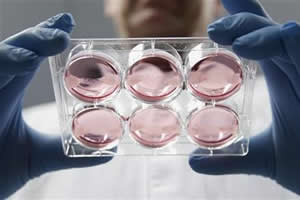
The donor program was created so that women willing to donate their eggs and those couples in need of donated eggs can access them.
A woman may need donor eggs for several reasons:
- Premature exhaustion of the ovarian reserve and the associated deterioration in the quality of the eggs.
- Genetic reasons for not using one's own eggs, such as certain genetically transmitted diseases.
- Older women who have previously undergone unsuccessful IVF procedures.
Fortunately, some women are willing to donate their eggs to help those in need. Donors are usually between the ages of 21 and 34 and donate to an anonymous recipient (or, in rare cases, to a related recipient).
The woman donating eggs is prescribed hormonal medications to stimulate the ovaries to produce several mature follicles simultaneously. Each follicle may contain an egg. This process is regularly monitored through ultrasound examinations and blood sampling to ensure the ovarian stimulation process is progressing appropriately.
Once fully mature follicles are present in the ovaries, we proceed to retrieve the eggs through a clinical procedure conducted by our in vitro specialist under full anesthesia. This procedure uses an ultrasound-guided needle that passes through the vaginal wall into the ovary to collect the eggs. The procedure typically lasts between 5-20 minutes. The aspirated eggs are then immediately transferred to the embryology laboratory.
On the same day the eggs are retrieved, the partner provides a semen sample, which is processed with nutrient media to isolate the most motile and normal-looking spermatozoa for fertilizing the eggs. The processed sperm and eggs are placed together in the embryology laboratory overnight.
The next day, the eggs are checked for signs of fertilization. Those that show normal fertilization are left in the lab for another 24-96 hours. Fertilized eggs are now called embryos. The development of the embryos is monitored, and the couple is informed of their progress.
The recipient's cycle will be synchronized with the donor's cycle using hormone replacement drugs to ensure the recipient's endometrium is in an optimal state to receive the embryos.
Once we determine that the embryos are ready for transfer to the uterus, a date and time will be scheduled. Before the procedure, discussions with our IVF specialist will determine the number of embryos to be transferred. The transfer, a delicate clinical procedure, involves a fine catheter carrying the embryo(s) passing through the vagina and cervical canal into the uterus. This procedure typically takes less than half an hour, and discomfort is minimal for most women.
The pregnancy success rate with this procedure is approximately 55% per cycle, although success depends on various factors, including the number and quality of the donated eggs.
MC “Afrodita” has a contract with Ovobank, Spain.

